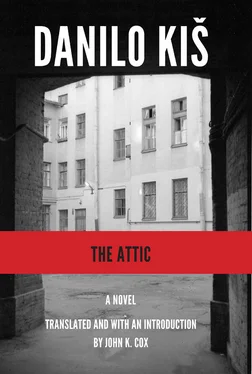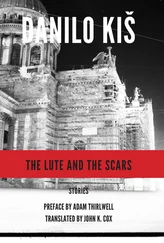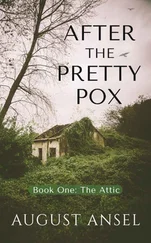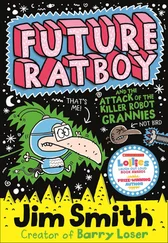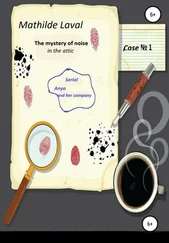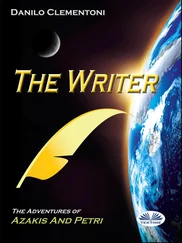Danilo Kiš - The Attic
Здесь есть возможность читать онлайн «Danilo Kiš - The Attic» весь текст электронной книги совершенно бесплатно (целиком полную версию без сокращений). В некоторых случаях можно слушать аудио, скачать через торрент в формате fb2 и присутствует краткое содержание. Год выпуска: 2012, Издательство: Dalkey Archive Press, Жанр: Современная проза, на английском языке. Описание произведения, (предисловие) а так же отзывы посетителей доступны на портале библиотеки ЛибКат.
- Название:The Attic
- Автор:
- Издательство:Dalkey Archive Press
- Жанр:
- Год:2012
- ISBN:нет данных
- Рейтинг книги:4 / 5. Голосов: 1
-
Избранное:Добавить в избранное
- Отзывы:
-
Ваша оценка:
- 80
- 1
- 2
- 3
- 4
- 5
The Attic: краткое содержание, описание и аннотация
Предлагаем к чтению аннотацию, описание, краткое содержание или предисловие (зависит от того, что написал сам автор книги «The Attic»). Если вы не нашли необходимую информацию о книге — напишите в комментариях, мы постараемся отыскать её.
Bildungsroman
The Attic — читать онлайн бесплатно полную книгу (весь текст) целиком
Ниже представлен текст книги, разбитый по страницам. Система сохранения места последней прочитанной страницы, позволяет с удобством читать онлайн бесплатно книгу «The Attic», без необходимости каждый раз заново искать на чём Вы остановились. Поставьте закладку, и сможете в любой момент перейти на страницу, на которой закончили чтение.
Интервал:
Закладка:
He shook my hand and hurried off.
“Anyway, come by for the lightbulb!” he called my way in the entrance hall. “I’m telling you! This business with the candle. .”
For a moment I remained standing in front of the building, staring into the windows. The morning sun had already begun to dry the gray, damp walls so that only dark spots remained, from which fine, transparent steam was rising. White laundry, soaked by rain and by sun, waved lazily as it hung on the line stretched between the upper floors of the buildings. Pigeons on the iron balustrade along the balcony vigorously flapped their wings. Somewhere on the fourth floor a child was crying. Then this was overpowered by the singing of a young woman. I tried to determine which window the singing was coming from. The woman sang in a youthful morning voice:
You’ll never be able to gather
The season’s first quinces with me. .
Then the fluttering curtain on the fourth floor moved to the side and the woman flung the window open wide. Her upper arms shone in the sunlight and her light-colored chintz blouse allowed her breasts to come into view as she bent forward, reaching for the shutters.
When she caught sight of me, she recoiled and lowered her voice a little. Then she stuck out her tongue at me and pulled the curtain shut again. I watched the folds of the curtain billow, and the only words I could pick out from the rest of the song was: break of day .
Suddenly the entire building began to sway on its foundations, just like the curtain. I lowered my eyes, because I sensed that the woman behind the curtain was watching me.
As I walked away, I was able to make out the second part of the song as well:
You’ll never be able to view
The break of day with me. .
BELGRADE
NOVEMBER 1959–MAY 1960
TRANSLATOR’S NOTES
Gnohti saeuton : This is garbled version of the precept Gnothi seauton (Greek), meaning “Know thyself.” It was inscribed above the portico of the Temple at Delphi.
from the first arson : Here Kiš has made a rhyming pun in the Serbian genitive case, using the phrases prvog hica (from the first hitac , or shot) and prvog lica (from the first lice , or grammatical person).
You’re wearing a new dress : Starting with this paragraph and continuing for over four pages to the phrase “Adieu, mon prince Carnaval,” Kiš is quoting/paraphrasing from the 1934 novel The Magic Mountain by Thomas Mann. See the chapter entitled “Walpurgis Night,” especially beginning on page 398 in the most recent English translation by John E. Woods (Knopf, 1995). While Mann writes in a mixture of French and German, Kiš uses French and Serbian. In addition, Kiš does not quote the entire section, just certain substantial passages.
life’s orphans : The Serbian term employed here is siročad života , which is indeed best translated as “orphans of life.” But in the novel by Mann, the German phrase used in the midst of the long conversation in French is Sorgenkinder des Lebens ( Der Zauberberg , Frankfurt am Main: Fischer, 1960. p. 309), an expression that admits of many translations. Woods uses the term “problem children” in the quoted translation, but I have deviated from him in this place to better follow Kiš’s version. Previous translators of Mann have rendered the phrase as “life’s delicate children” or “worry-children of life,” while more modern but overly clinical renditions might evoke the idea of “high-needs children.” Had Kiš not used a Serbian phrase that is fairly clear, this translator would indeed have concurred with Woods’s rendering, as his chosen term allows both spiritual and physical connotations.
some secret dream : An untranslatable play on words. In Serbian, san means dream, while skrit is the past participle of the verb skriti , which means to hide.
kakaform : This may refer to an imported chocolate drink powder from northern Europe, but it might also be another of Kiš’s neologisms. In that case the word would seem to be a mixture of the Serbian terms kloroform, kaka , and kakao , signifying chloroform, excrement, and cocoa, respectively. The unpleasant associations are quite plausible given the narrator’s attitudes and actions toward the female character in question.
But don’t get formal with me : Serbian has two forms of the singular pronoun “you.” The informal form ( ti ) is used for close friends, family members, and children, while the formal form ( vi ) is used for adult acquaintances or strangers. A more literal translation of the narrator’s statement would be: “But don’t say vi to me. You can see that I say ti to you.”
Žilavka : A famous variety of Balkan wine.
Hosszú lépés : A Hungarian drink consisting of wine mixed with soda water.
Vugava : Another famous variety of Balkan wine.
Fruška Gora : A small mountain range in northern Serbia between Belgrade and the capital of the Vojvodina, Novi Sad.
Dubrovnik Madrigal : The title of a poem by the beloved Serbian writer Jovan Dučić (1874–1943).
Ohrid : A large lake on the border of Macedonia and Albania.
Gračanica : An important Serbian Orthodox monastery in the southern Serbian province of Kosovo, founded in the fourteenth century.
Prince Marko : Famous character from Serbian (and Balkan) history and folklore, he was known in Serbian as Kraljević Marko. Marko lived in the late fourteenth century and his reputation paints him as a combination of freedom fighter and rogue.
Scutari : A port located in northern Albania, close to the border with Montenegro, this old city figures prominently in Serbian history and legends.
Mother Jevrosima : Prince Marko’s mother.
Banović Strahinja : Medieval Serbian leader in the era of the Ottoman takeover (late fourteenth century).
Lazar : Prince Lazar (1329–1389), the leader of the weakened Serbian state who perished at the famous Battle of Kosovo.
Vuk Mandušić : A fierce Serbian warrior in the influential epic The Mountain Wreath by Petar Petrović Njegoš (1813–1851).
Simonida : “Simonida” is a poem by the highly regarded Serbian writer Milan Rakić (1876–1938).
Egg of Columbus : An expression referring to a difficult puzzle with a simple solution. Kiš could be making a link to the Serbian-American inventor Nikola Tesla, who called his presentation on electricity by this name at the Chicago World’s Fair in 1893.
giving away furs : More wordplay. The narrator uses the words bunda and bundeva , so that a literal translation of the sentence would read: “But, how is it that you are giving out furs like they were pumpkins?”
ABOUT THE AUTHORS
DANILO KIŠ was one of Serbia’s most influential writers and the author of several novels and short-story collections, including A Tomb for Boris Davidovich, Hourglass , and Garden, Ashes . He died in 1989 at the age of 54.
JOHN K. COX is professor of history and department head at North Dakota State University. His translations include the novel Psalm 44 by Danilo Kiš, as well as short fiction by Kiš, Ismail Kadare, Ivan Ivanji, Ivo Andrić, and Meša Selimović.
Интервал:
Закладка:
Похожие книги на «The Attic»
Представляем Вашему вниманию похожие книги на «The Attic» списком для выбора. Мы отобрали схожую по названию и смыслу литературу в надежде предоставить читателям больше вариантов отыскать новые, интересные, ещё непрочитанные произведения.
Обсуждение, отзывы о книге «The Attic» и просто собственные мнения читателей. Оставьте ваши комментарии, напишите, что Вы думаете о произведении, его смысле или главных героях. Укажите что конкретно понравилось, а что нет, и почему Вы так считаете.
